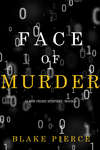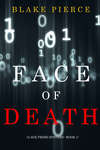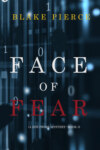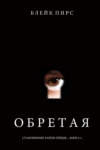Читать книгу: «Face of Murder»
Blake Pierce
Blake Pierce is the USA Today bestselling author of the RILEY PAGE mystery series, which includes sixteen books (and counting). Blake Pierce is also the author of the MACKENZIE WHITE mystery series, comprising thirteen books (and counting); of the AVERY BLACK mystery series, comprising six books; of the KERI LOCKE mystery series, comprising five books; of the MAKING OF RILEY PAIGE mystery series, comprising five books (and counting); of the KATE WISE mystery series, comprising six books (and counting); of the CHLOE FINE psychological suspense mystery, comprising five books (and counting); of the JESSE HUNT psychological suspense thriller series, comprising five books (and counting); of the AU PAIR psychological suspense thriller series, comprising two books (and counting); and of the ZOE PRIME mystery series, comprising two books (and counting).
An avid reader and lifelong fan of the mystery and thriller genres, Blake loves to hear from you, so please feel free to visit www.blakepierceauthor.com to learn more and stay in touch.

Copyright © 2020 by Blake Pierce. All rights reserved. Except as permitted under the U.S. Copyright Act of 1976, no part of this publication may be reproduced, distributed or transmitted in any form or by any means, or stored in a database or retrieval system, without the prior permission of the author. This ebook is licensed for your personal enjoyment only. This ebook may not be re-sold or given away to other people. If you would like to share this book with another person, please purchase an additional copy for each recipient. If you’re reading this book and did not purchase it, or it was not purchased for your use only, then please return it and purchase your own copy. Thank you for respecting the hard work of this author. This is a work of fiction. Names, characters, businesses, organizations, places, events, and incidents either are the product of the author’s imagination or are used fictionally. Any resemblance to actual persons, living or dead, is entirely coincidental. Jacket image Copyright Tavarius, used under license from Shutterstock.com.
BOOKS BY BLAKE PIERCE
THE AU PAIR SERIES
ALMOST GONE (Book#1)
ALMOST LOST (Book #2)
ALMOST DEAD (Book #3)
ZOE PRIME MYSTERY SERIES
FACE OF DEATH (Book#1)
FACE OF MURDER (Book #2)
FACE OF FEAR (Book #3)
A JESSIE HUNT PSYCHOLOGICAL SUSPENSE SERIES
THE PERFECT WIFE (Book #1)
THE PERFECT BLOCK (Book #2)
THE PERFECT HOUSE (Book #3)
THE PERFECT SMILE (Book #4)
THE PERFECT LIE (Book #5)
THE PERFECT LOOK (Book #6)
CHLOE FINE PSYCHOLOGICAL SUSPENSE SERIES
NEXT DOOR (Book #1)
A NEIGHBOR’S LIE (Book #2)
CUL DE SAC (Book #3)
SILENT NEIGHBOR (Book #4)
HOMECOMING (Book #5)
TINTED WINDOWS (Book #6)
KATE WISE MYSTERY SERIES
IF SHE KNEW (Book #1)
IF SHE SAW (Book #2)
IF SHE RAN (Book #3)
IF SHE HID (Book #4)
IF SHE FLED (Book #5)
IF SHE FEARED (Book #6)
IF SHE HEARD (Book #7)
THE MAKING OF RILEY PAIGE SERIES
WATCHING (Book #1)
WAITING (Book #2)
LURING (Book #3)
TAKING (Book #4)
STALKING (Book #5)
RILEY PAIGE MYSTERY SERIES
ONCE GONE (Book #1)
ONCE TAKEN (Book #2)
ONCE CRAVED (Book #3)
ONCE LURED (Book #4)
ONCE HUNTED (Book #5)
ONCE PINED (Book #6)
ONCE FORSAKEN (Book #7)
ONCE COLD (Book #8)
ONCE STALKED (Book #9)
ONCE LOST (Book #10)
ONCE BURIED (Book #11)
ONCE BOUND (Book #12)
ONCE TRAPPED (Book #13)
ONCE DORMANT (Book #14)
ONCE SHUNNED (Book #15)
ONCE MISSED (Book #16)
ONCE CHOSEN (Book #17)
MACKENZIE WHITE MYSTERY SERIES
BEFORE HE KILLS (Book #1)
BEFORE HE SEES (Book #2)
BEFORE HE COVETS (Book #3)
BEFORE HE TAKES (Book #4)
BEFORE HE NEEDS (Book #5)
BEFORE HE FEELS (Book #6)
BEFORE HE SINS (Book #7)
BEFORE HE HUNTS (Book #8)
BEFORE HE PREYS (Book #9)
BEFORE HE LONGS (Book #10)
BEFORE HE LAPSES (Book #11)
BEFORE HE ENVIES (Book #12)
BEFORE HE STALKS (Book #13)
BEFORE HE HARMS (Book #14)
AVERY BLACK MYSTERY SERIES
CAUSE TO KILL (Book #1)
CAUSE TO RUN (Book #2)
CAUSE TO HIDE (Book #3)
CAUSE TO FEAR (Book #4)
CAUSE TO SAVE (Book #5)
CAUSE TO DREAD (Book #6)
KERI LOCKE MYSTERY SERIES
A TRACE OF DEATH (Book #1)
A TRACE OF MURDER (Book #2)
A TRACE OF VICE (Book #3)
A TRACE OF CRIME (Book #4)
A TRACE OF HOPE (Book #5)
PROLOGUE
Professor Ralph Henderson sighed, rubbed the bridge of his nose, and fished around in the pocket of his coat for his car keys. It had been a long evening of marking English papers, and either his students were getting more stupid or he was getting more tired of the job. He was more than ready to prop himself up in bed for the night with a small glass of whiskey and one of the classics.
The Georgetown parking garage was almost empty, most of the other faculty members having had enough sense to go home long ago. It was chilly and gloomy, the electric strip lights flickering overhead as moths bumped into them with suicidal intent. Henderson cut across the empty spaces, taking a shortcut to his car. He briefly trifled with the idea of stopping off somewhere for a takeout coffee on the way back. Or would it be better just to get home as soon as possible, to the safety and warmth of one’s own domain?
His footsteps echoed with an eerie resonance through the garage, the concrete ceiling and the concrete floor throwing the sounds back and forth. It was on nights like these that the garage transformed into a different kind of beast. A place where unsavory types might lurk in the shadows, ready to pounce. The kind of thinking that you couldn’t shake, even when you repeatedly told yourself you were an adult and shouldn’t be afraid of the dark anymore.
Mind you, there was a good reason to be nervous tonight. The campus had been buzzing with news of a murder that had taken place right there, under their own noses. A student that Henderson had known. Maybe that was the reason the hairs stood up on the back of his neck as he crossed the garage, and why he couldn’t help but dart furtive and wide-eyed glances into the shadows, trying to see if there was someone hiding within.
He tried to distract himself. There was more to think about. There was a kid he’d had to throw out of the class for failing yet another paper. It was so frustrating to teach—to see these kids with so much potential getting caught up in parties and not taking their studies seriously. It was with regret that Henderson had had to flunk him, but he felt more than justified now after getting an email from the student.
Full of vitriol, the email was borderline threatening. Apparently, the kid didn’t appreciate being kicked out and wanted to make sure that Henderson knew it. As if such a gesture was somehow going to get him reinstated to the course. Ha! The kid had a lot to learn about life, and about how people reacted to the way you treated them.
Henderson reached the car and fumbled with his keys, his fingers thick and slow from having written out so many comments while grading the students. He cursed himself, a shaking taking over his hands, driven by the isolation of the parking garage at night. He was being silly. He was a grown man, for god’s sake, and he walked through this garage in the light of day without ever a second thought.
Anyway, he thought to himself darkly, if anyone was going to be after him, it would be that angry student. And he wasn’t smart enough to stalk a professor in the dark of a parking garage. He was the kind of kid who sent angry emails and left a trail. Nothing to worry about, really. Henderson would report it to the dean tomorrow, and that would be that.
What was that noise? A footstep? Something was wrong here. He had been dismissing his fears all this time, but now he was less sure. The prickling feeling on the back of Henderson’s neck increased, something like a premonition, but before he could turn, his head was hitting the car window with a sharp crash.
Henderson barely had time to register this fact and the flooding pain coming from his nose before the hand on the back of his head smashed it into the side of the car again. He was slipping lower, taken down by the shock and the injury, his body going limp. He tried to twist away a little, his briefcase flying forgotten to the floor, but he couldn’t fight the next blow, or the next. Over and over his head hit the red chassis, his temple, the top of an eye socket, his jaw just below the ear.
He felt the damage with a kind of detached shock. The crack of a bone breaking. The thought of bruises blossoming across his face, then of cuts and abrasions, then of something more serious. All he could think, stupidly, was that his face was going to be ruined. All he had time to think before it was seemingly over.
The gripping hand released him, and Henderson sank unceremoniously to the floor, hitting a shoulder on the way down. He barely felt it, against all the rest. He was twisted enough now to groggily turn his head and look, though his vision was blurred. Maybe from the blows. Maybe from blood falling into his eyes. Maybe because his eye socket had to be broken, at the very least.
Who was that? A vague shape, a whisper only, as if it were a ghost that stood over him and not a man. But it was a man. It had to be a man. If only he could make out just who—but Henderson’s consciousness was slipping out of him like sand through his fingers, and he could no longer hold on. Something was flowing out of him, leaving him cold and empty. He knew it was almost over. The world was going black around him, the watery shape above watching in silence.
The shadow stretched above him and lifted his head one last time and slammed it down into the concrete, an impact that Henderson barely even sensed before he tumbled down headfirst into that blackness.
The job was done.
He would not wake up again.
CHAPTER ONE
Zoe traced cracks across the arm of the leather chair, seeing how their pattern revealed a tale of aging, of so many different hands and arms lying on this exact spot. She couldn’t decide whether that was a comfort, an indication of experience, or just gross. Who knew what kind of germs lurked within this fabric?
“Zoe?” Dr. Lauren Monk prompted her, from a similarly comfortable chair placed opposite her.
Zoe looked up guiltily. “Sorry, was I supposed to answer that?”
Dr. Monk sighed, tapping her pen against a pad of paper in her hand. Despite the recorder sitting on the desk which archived all of their sessions, it seemed that Dr. Monk was still a fan of traditional methods. “Let’s change tack for a moment,” she said. “We’ve had a few sessions together now, haven’t we, Zoe? I’m noticing that you sometimes have trouble with social cues.”
Ah. That. Zoe shrugged, trying to give off an air of indifference. “I do not always understand the ways in which people seem to react.”
“Or the ways in which they expect you to react?”
Zoe shrugged again, her gaze traveling toward the window. Then she mentally slapped herself; she was supposed to be taking an active part in these sessions, not acting like a moody teenager. “My logic is different from their logic.”
“Why do you think that is?”
Zoe knew why she was the way she was, or at least thought she did. The numbers. The numbers that were everywhere she looked, every moment of the day. They told her even now what prescription Dr. Monk wore in her glasses (barely strong enough to require any kind of aid), that there was half a millimeter of dust on the certificate frames on the wall but only a quarter of a millimeter on the psychology degree (indicating a stronger sense of pride in this than her other achievements), and that Dr. Monk had written down exactly seven words during their conversation so far.
She wanted to say it, or at least some parts of her did. She still had not admitted to Dr. Monk that she had an ability that no one else seemed to. No one except for the occasional serial killer, if the case she had worked a month or so ago was anything to go by.
But there was another part of her, still the stronger part, that could not bear to admit anything at all.
“I was just born this way,” Zoe said.
Dr. Monk nodded, but did not write anything down. Apparently, this was not a significant enough answer. “How does it feel when you miss those social cues? Does it bother you?”
Maybe it was the fact that they had done enough sessions together now for the initial awkwardness to fade away. Maybe it was just the freedom of talking to someone with whom she had no real professional or personal connection. Either way, Zoe’s mouth blurted out a truth that her mind had kept hidden from now, without her conscious permission. “Shelley finds it so easy.”
Zoe cursed herself immediately. What kind of thing to say was that? Now they would spend the rest of the session digging into this jealousy she felt toward Shelley, instead of working on real problems. Until this moment she had not even really acknowledged to herself that the envy was there.
“Agent Shelley Rose,” Dr. Monk said, consulting her notes from a previous afternoon in her office. “You feel more comfortable with her than your previous partners, you indicated to me previously. But you feel jealousy towards her. Can you expand on that?”
Zoe took a breath. Of course she could, though she did not want to. Reluctantly, she studied her own fingers, thinking it best to just get it over with. “Shelley has a way with people. She talks them into admitting things. And they like her. Not just suspects. Everyone.”
“Do you feel that people don’t like you, Zoe?”
Zoe shifted uncomfortably. This was all her own fault. She shouldn’t have said something like that. Admitting a weakness was an invitation for someone to dig into it. This was why she had not mentioned the numbers yet. Even if this therapist had been suggested by Dr. Applewhite, her most trusted friend and mentor, that didn’t mean that Zoe could trust her with her deepest and darkest secret. “I do not have many friends. Partners usually request to transfer away from me,” she admitted instead.
“Do you think this is linked to your struggle with social cues?”
The woman was asking an obvious question. “That, and other things.”
“What things?”
The obvious question. Zoe groaned inwardly. She had set herself up for that trap. “My job is difficult. I am gone often. There is not much time to put down roots.”
Dr. Monk nodded thoughtfully. She was smiling encouragingly, as if Zoe was really getting somewhere. The part of her that craved the positive attention and affection she had never received from her mother thrilled at that, even though she did not want it to. Being in therapy was, so far, only serving to highlight all of her flaws. “What about Shelley? Does she have roots?”
Zoe nodded, swallowing down an unbidden lump. “She has a husband and a young daughter. Amelia. She talks about her a lot.”
Dr. Monk put her pen to her lips, tapping it three times meaningfully. “You want a family of your own.”
Zoe looked up sharply, then remembered not to be surprised that a therapist could discern the truest thoughts lurking behind whatever else you said. “Yes,” she said, simply. There was no point in denying it. “But I am very far from that point.”
“When we met for our first session, you told me you’d been on a date.” Dr. Monk did not have to check through her notes for this, Zoe saw. “He contacted you, didn’t he? Did you reply?”
Zoe shook her head no. “He has sent me a few emails, and tried to call. I did not answer.”
“Why is that?”
Zoe shrugged. She couldn’t exactly say. She reached up self-consciously to touch a few strands of her brown hair, kept cropped short for convenience rather than fashion. There were many things about her that were not perhaps conventionally attractive, and she knew that, even if she didn’t exactly understand how other people saw her. “Maybe because the first date was awkward. I was too distracted. I could not focus on what he was saying. I was boring.”
“But he didn’t think so, did he? This…?”
“John.”
“This John, he seems interested. He keeps trying to get in touch. That’s a good sign.”
Zoe nodded. There was nothing else that she could say. Dr. Monk was making sense, even if she hated to admit it.
“Let me tell you what I see,” Dr. Monk continued. “You have expressed to me that Shelley has the kind of life you want. She is happily married with a child, doing well in her career, has skills that you don’t have. We will always be jealous of those who can do things we can’t. That’s human nature. The important thing is not to let it consume you, and to focus on the things that you can achieve.”
She waited for Zoe to nod again, to give an indication that she was listening, before she continued.
“Things don’t happen on their own. Or to put it another way, it’s unlikely that you are going to get married if you never go on any dates. My advice to you is to give John a call, and go out for that second date. Maybe it won’t turn out so well. Maybe it will turn out great. The only way to find out is to give it a try.”
“You think I should marry John?” Zoe frowned.
“I think you should go on a date with him.” Dr. Monk smiled. “And if he doesn’t work out, I think you should go on a date with someone else. That’s how you work towards your goals. One step at a time.”
Zoe was not entirely convinced, but she nodded all the same. Besides, she had something important to take care of now. “I think that is the end of our time.”
Dr. Monk laughed. “That’s my line,” she said, getting up to escort Zoe to the door. “And don’t think I am so easily distracted. Next session, we’ll circle back to this issue of social cues and seeing things differently from how others do. We’ll get to the bottom of it, even if you aren’t ready to be fully honest with me.”
Zoe avoided her therapist’s eyes as she headed out of the office, not wanting to betray the hope she had held that Dr. Monk really would forget.
CHAPTER TWO
At least lunch was something for Zoe to get excited about. It had been a long while since she had been able to meet with her mentor in person, and she had been looking forward to it. It was enough to get her through the therapy session and out the other side, knowing that there was something good coming.
Dr. Francesca Applewhite, a professor of mathematics who had worked at Zoe’s college, had turned out to be one of the best introductions Zoe had ever had in her life. Back then, still a teenager and way out of her depth in the social atmosphere of the dorms, she had been skeptical about one more meeting with one more specialist. But it turned out that the doctor understood her completely—saw that she had a special gift, something which needed to be nurtured. They had started with private tutoring, designed to lift her skills to another academic level. Everything else had developed from there.
“Doctor,” Zoe greeted, reaching their table and dropping herself down into the free chair. Dr. Applewhite had no doubt been there for some time, judging by the half-drunk cup of coffee and the worn paperback in her hands. Zoe could not help but notice that the streaks of gray were gaining strand by strand against her once-dark hair, a stark contrast to the version of the doctor in her memory of that first time.
Dr. Applewhite slipped a bookmark between the pages and put it to one side, smiling as she looked up. “My favorite graduate. How is the Bureau treating you?”
She had good reason to ask the question. It had been her suggestion, after all, that put Zoe on the path toward law enforcement. After her colleague, one of Zoe’s math teachers, had connected them, Zoe’s whole life had changed. She knew exactly who she had to thank for that.
“Good. My new partner is going well,” Zoe said. She picked up the menu to scan the items, but she barely needed to. She already knew what she was going to order. A scan of the column and row sizes told her that nothing new had been added, and they always met for lunch at this place.
Dr. Applewhite leaned over to grab the attention of a waiter, and while the doctor watched him walking over, Zoe watched her instead. She remembered that first meeting. How Dr. Applewhite had shown an actual interest in what Zoe had to say, one of the few people in her life who had actually really listened to her. The older woman had put on several pounds since that time, but had never lost an ounce of the compassion she showed to a young woman who had no idea of her place in the world.
Their relationship had grown over time. Zoe was slow to trust, slow to let her in. But eventually she had had to take a chance, to admit her secret. To tell her about the numbers.
It hadn’t been easy. After so many years of Zoe’s mother telling her that her gifts were given her by the devil, she had found the words caught in her throat many times. But Dr. Applewhite had been excited, not appalled, to learn of Zoe’s abilities. From then on, their bond had only strengthened.
“How about Dr. Monk?” Dr. Applewhite asked after Zoe had placed her order, her eyes twinkling slyly. “She told me you took me up on my recommendation.”
Zoe couldn’t contain a chuckle. “Checking up on me?”
“I always have to keep an eye on my favorites,” Dr. Applewhite laughed. It was an ongoing joke between them. Dr. Applewhite was not, of course, supposed to have favorites. But in many ways, Zoe had helped her career just as much as Dr. Applewhite had set Zoe on the way to hers. Dr. Applewhite had ended up specializing in the study of synesthesia with regards to math, and now mentored a number of others who had the same abilities that Zoe did. More or less, anyway.
“The sessions are going well,” Zoe acknowledged. “Dr. Monk has some good insights. I can see why you like her.”
“She has a very good reputation. Any progress you can share with me? Or is it all too personal?”
Zoe shrugged, studying the two inches of water in the bottom of the vase on their table, which would not be enough to sustain the two chrysanthemum stems for long. The internal calculations of how long it would take for a total wilt distracted her enough to allow her to say what was on her mind. “She said I should go on more dates.”
Dr. Applewhite grinned heartily, her own wedding ring glittering in the light from the sun as she raised her coffee cup to her lips. “She could be right.”
“I really do not think it will be the solution to all my problems,” Zoe huffed, lifting the fresh cup of coffee brought by the waiter to her lips.
“Maybe not all of them, but some,” Dr. Applewhite said, serious now. “I’m not saying that you have to feel bad about who you are. You’re functional—more than that. You have turned it into an advantage in your work. Others aren’t as capable as you are. I just worry about you. You know I do.”
Zoe nodded. “I appreciate that,” she said. She figured that, with all things considered, Dr. Applewhite might be the only person in the world to actually worry about her. That was a comfort, to have at least one person.
Before she could complete the thought, and even go so far as to take the recommendation to call John seriously, her cell rang in her pocket. Zoe grabbed it out and answered the call, seeing Shelley’s name on the display.
“Special Agent Zoe Prime.”
“Hey, Z. Hope you’re not doing something nice right now.”
Zoe sighed, looking down at her half-finished plate of food. Not that she had even really noticed the taste, with her mind on other things. “I take it we have a case.”
“I’ll meet you at HQ in thirty minutes. The chief says this is a big one.”
Zoe offered Dr. Applewhite an apologetic smile, but the doctor was already waving her away. “Go do your duty, Agent. But there’s one more thing I have to tell you…” Dr. Applewhite hesitated, taking a breath. She seemed reluctant to speak, but forged on, looking down at Zoe’s half-empty plate as she did. “One of the others in my research group—another synesthete. We thought he was doing better, but… I’m sorry to say, he killed himself last week. Without a support network beyond myself, he was struggling. Humans need other humans around us, to help us emotionally. All of us do. Even those who think a bit differently.”
Zoe paused, staring down into her coffee cup and the several millimeters by which it had been underfilled, leaning back against the chair for support. She had never gone to meet any of Dr. Applewhite’s “research group”—test subjects, Zoe called them in her head when she was being unkind—but all the same, it was a blow to hear. Someone like her, who wanted to die for the sole reason that he was exactly like her. That was something to swallow, all right.
She picked up her bag mechanically, walking away without really seeing anything around herself. In her head she was reframing. Thinking back on Dr. Monk’s comments. Work towards your goals. One step at a time.
What did she have in her life, really? One mentor, who served as the closest thing to a mother figure she was ever going to find. A partner—Shelley—who was the closest thing she had to a friend. Two cats, Euler and Pythagoras—and though she loved them both, she knew that it was in the very nature of cats that they would be just fine if she was gone and they lived with someone else. A career that seemed to be on the rocks more than it was on the up and up, even if right now was one of the better times. A small apartment to call her own.
And a condition, or an ability, or whatever you wanted to call it, that made her so different it drove people like her to kill themselves.
It was a sobering thought to confront.
Начислим
+9
Покупайте книги и получайте бонусы в Литрес, Читай-городе и Буквоеде.
Участвовать в бонусной программе






















